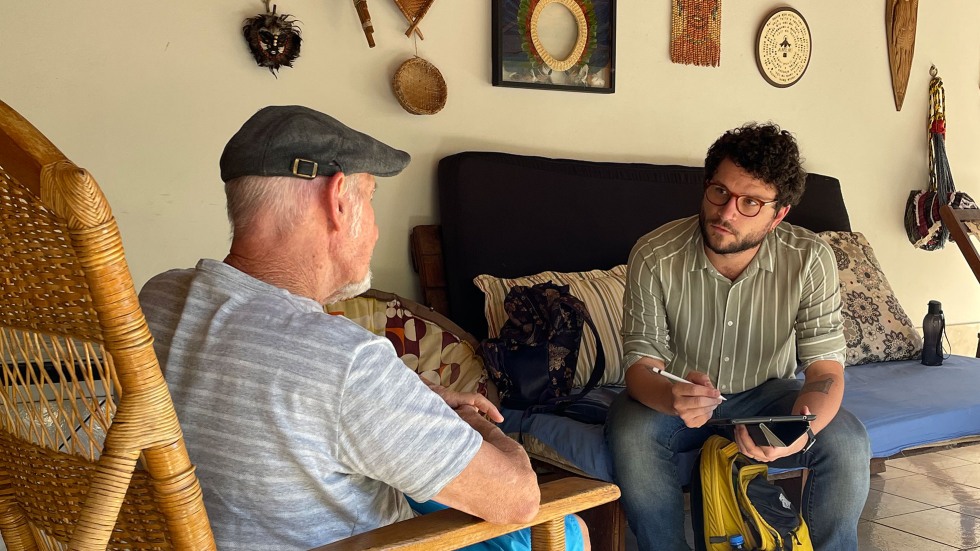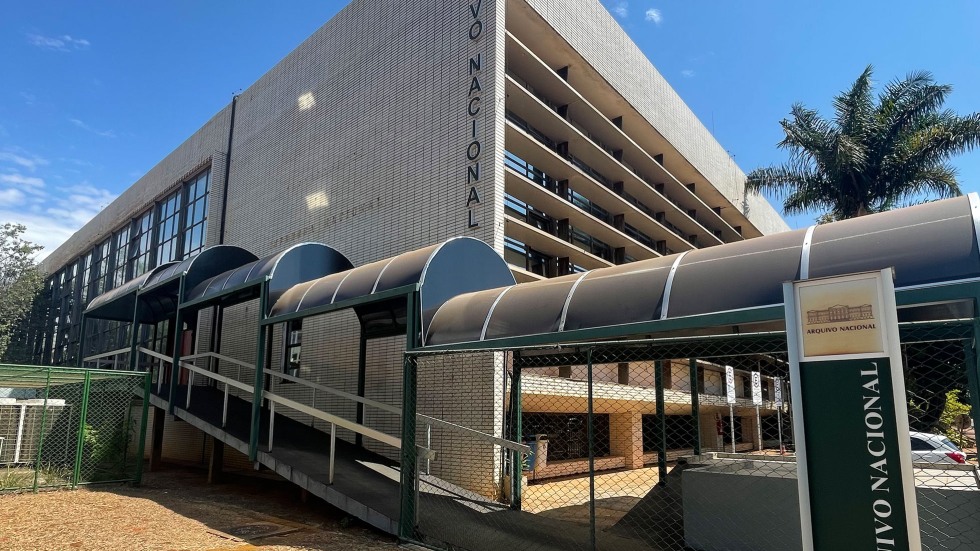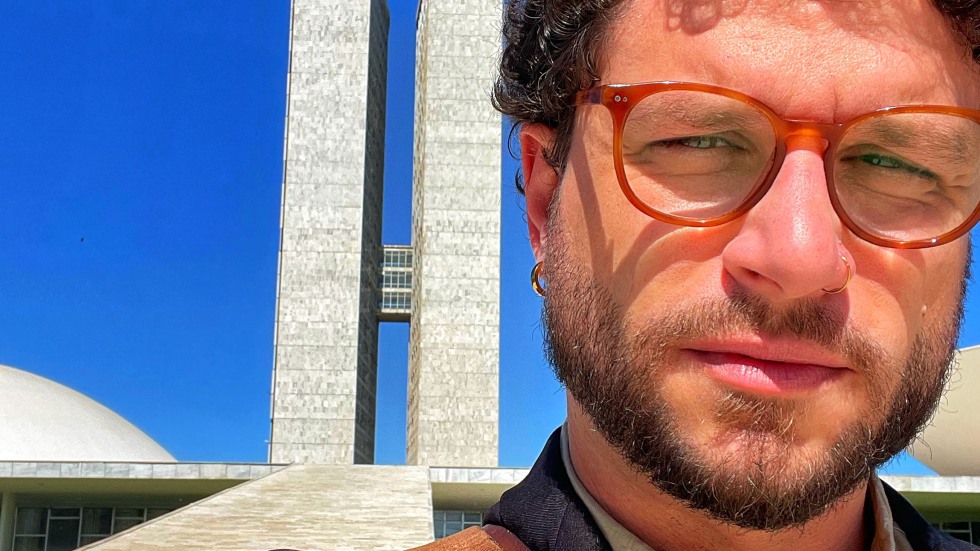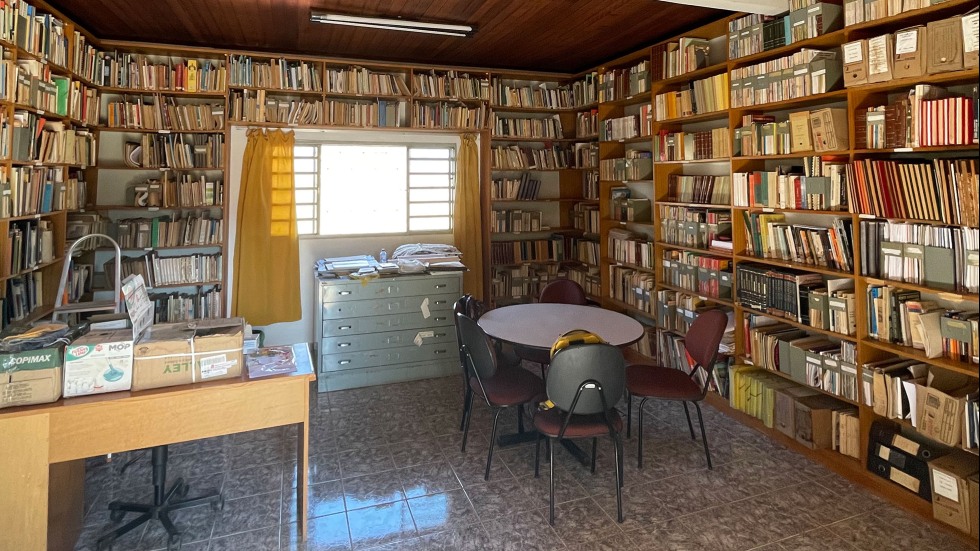Luiz Paulo's work investigates how Indigenous and environmental issues overlapped during the Brazilian military dictatorship era (1964-1985) and its aftermath and how this influenced debates on Indigenous and environmental rights both within and outside Brazil. His Summer research involved conducting interviews with Indigenous leaders, NGO members, activists, and government officials while examining historical documents in private and public archives.
With the support of a GPD Summer Grant (Summer 2023), Luiz Paulo Ferraz has been making meaningful strides toward his dissertation project, unveiling the role played by the strategic involvement of Indigenous peoples in the international arena in building strong coalitions with foreign and domestic actors, which galvanized international support for their cause and set new environmental and humanistic agendas at the national and global level. During the Summer research, Luiz Paulo has been analyzing the trajectories of several Indigenous leaders during the 1970s and early 1990s through archival research and oral history interviews, examining how the international arena, understood not only as the space outside of Brazil but also the dispute for the attention of the foreign eye, became a battleground where Indigenous peoples sought to defend their rights, lifeways, and the environment against settler-colonial violence represented by development projects.
The core of his Summer research unfolded in the country's capital Brasília, where Luiz Paulo delved into the archives of prominent institutions, including Brazil's National Archive, the National Indian Foundation Archive, and the Ministry of Foreign Affairs Archive. These institutions hold an extensive array of classified and unclassified records detailing Indigenous leaders' activities within Brazil and abroad.Recent findings arising from the research have unveiled a previously understated aspect of the military dictatorship era. The uncovered documents provide even stronger evidence of the regime's heightened concern for the activities of Indigenous leaders on the global stage. The extent of this international focus by the dictatorship's representatives becomes even more apparent upon scrutinizing the documentation uncovered during the summer research. These documents illuminate the diligent attention paid by Brazilian diplomats stationed abroad to the engagements and endeavors of Indigenous groups in various international contexts, including media appearances and participation in events like conferences, forums, and tribunals. These insights offer a nuanced perspective that adds a fresh dimension to our understanding of the dictatorship's engagement and actions regarding Indigenous affairs on the global stage and the Indigenous peoples' resistance against the military regime.
Moreover, Luiz Paulo's historical research extended to the Indigenist Missionary Council Archive in Brasília and the Vicente Cañas Center in Luziânia, Goiás, where he gained access to a vast array of historical materials. These included official records, periodicals, newspaper clippings, letters, and meeting minutes, which he has been meticulously studying since his visits to these institutions. A preliminary examination of these documents has already revealed a wealth of written records detailing the motivations, reports, and strategies employed by Indigenous leaders in their international activities.The documentation found throughout the research has been critical in revealing the historical process that had a crucial development during the military dictatorship in Brazil (1964-1985) when Indigenous leaders started to take the international stage to raise their voices against state-led infrastructure projects, its environmental impacts, and human rights violations perpetrated by the authoritarian regime.
Furthermore, during the summer, Luiz Paulo took an active role in various academic and non-academic events directly related to his research. He engaged in meaningful discussions with Indigenous leaders and members of the recently established Ministry of Indigenous People. Additionally, he participated in public hearings held within the chamber of deputies, where crucial issues concerning Indigenous Peoples rights and the environment in Brazil were addressed. These moments offer Luiz Paulo a valuable opportunity to access key stakeholders, gain insights into policy changes, and enhance the comprehension of the evolving legal and policy landscape, as well as the public discourse and awareness surrounding critical topics related to his research.
Looking ahead, Luiz Paulo has a comprehensive research agenda. He plans to visit Rio de Janeiro, where he will delve into the archives of the National Archive and the Public State Archive. His focus will be on gathering documents related to the 1992 UN Conference on Environment and Development, often referred to as the Rio Summit, as well as materials pertaining to the Indigenous event known as Kari-Oca Village. Furthermore, he intends to conduct interviews with the organizers and participants of these events. Additionally, he has plans to travel to various cities in the Amazon region to continue his dissertation research.



